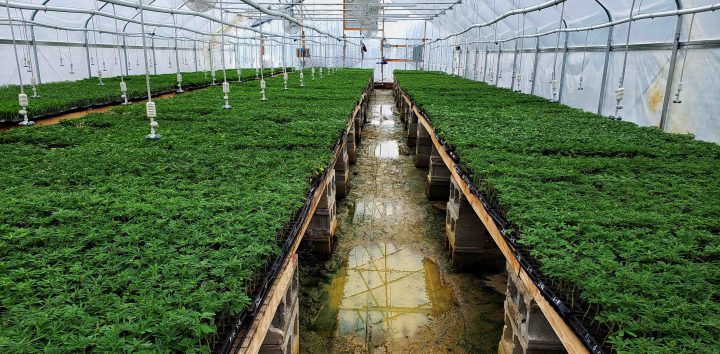MEDICINAL MARKET
Medical cannabis offers huge opportunities, but there are hurdles to clear

South Africa has been slow to capitalise on the opportunity presented by the cannabis industry, particularly the medical cannabis industry.
South Africa has a three- to five-year window to enter and establish a strong position in the European medical cannabis market, before it is outstripped by hungrier and quicker competitors from Latin America and parts of Asia, and other lowcost producers.
The medical cannabis market is in its infancy in Europe, but this is changing fast as countries amend their legislation to incorporate this evolving product set into their medical toolkits.
From current sales of €400-million, the European cannabis market is projected to be worth €2.7-billion in 2024, according to research from Prohibition Partners, a market intelligence firm that specialises in the cannabis market.
“Initially it was only in Italy and the Netherlands that patients could access products, but that is changing fast,” says Stephen Murphy, cofounder and CEO of Prohibition Partners. Germany is now the largest and most developed of the European markets, with a wide variety of products sold, he says. Consumer appetite for the products is growing fast – with 200,000 patients in Germany accessing medical cannabis products in 2021, up from 20,000 the previous year. France, Poland and all the Eastern European countries are also set to come onstream soon, providing agile southern African cannabis growers with a massive potential market, says Murphy.
As fast as European nations develop frameworks to manage the regulatory and safety aspects of the medico-cannabis markets in their countries, research into the plant’s medical benefits is accelerating.
“Researchers have a much better understanding of what is in the plant,” he says. While it is already accepted that drugs containing cannabinoids may be helpful in treating certain rare forms of epilepsy, as well as nausea and vomiting associated with cancer chemotherapy, chronic pain and multiple sclerosis symptoms, research on cannabis or cannabinoids for other conditions is also under way. “We are not even on the growth curve of understanding the opportunities. Depending on how you breed the plant, it could vary from appetite suppressant to stimulant. More than 75 conditions are being researched…”
The study was commissioned and funded by the EU-SA Partners for Growth project, which is aimed at maximising trade and investment between Europe and SA.
However, South Africa has been slow to capitalise on the opportunity that the cannabis industry in general, and the medical cannabis industry in particular, presents.
Regulatory and policy uncertainty, slow licensing, access to markets, purchasing agreements and lack of information have all been seen as hobbling SA’s emergence as a global cannabis player. However, the intentions are good, and at the State of the Nation Address in February President Cyril Ramaphosa identified the sector as a key part of SA’s post-Covid economy. He promised that the government would review the policy and regulatory framework and fast-track regulations for the cannabis industry in SA.
However, some Lesotho-based companies are taking advantage of the enabling regulatory environment there and are further ahead when it comes to positioning themselves for the European market.
MG Health, which is near Marakabei in the highlands of Lesotho, is one of these. It is the first medical cannabis producer on the continent to meet the European Union’s (EU’s) Good Manufacturing Practice guidelines, which govern the safety and consistency for the import of pharmaceutical goods into the EU.
“This is the gold standard of pharmaceutical certification in Europe and will put local companies in pole position when it comes to exporting to Europe,” says Murphy.
As a result MG Health which was already supplying into Germany, has expanded into other European markets.
Kasief Isaacs, senior investment principal at Mergence Investment Managers, which has two cannabis investments in Lesotho, is mindful that there is a shrinking window of time in which to build a credible export industry. “More and more countries are seeing the medical potential of cannabis and are positioning themselves to be part of the supply chain,” he says. He is also aware that the industry is evolving fast and that parts of this supply chain will become commoditised. It is only those companies that have had the time and foresight to develop higher-value products and extracts that will succeed, he says. “Our longer-term plan is to move into oils, extracts and blends – the flower will be commoditised.”
Lesotho has licensed 150 medical cannabis growers, but only 20 are active, and of these, just MG is supplying into the EU directy. One more is embarking on the final stage of accreditation, another five to six may get there within 12 months and the rest are at an early stage, but may have access to enough committed capital to get there, he says.
SA is trying to play catch-up, and to date the South African Health Products Regulatory Authority has issued 55 licences for the growing of medicinal cannabis. This is progress, but the process is expensive and fraught with uncertainty, says Erica Joubert, the head of export promotion at Western Cape trade organisation Wesgro.
Other legislation is wending its way through government. The draft national cannabis master plan was published last August, and the first steps towards the implementation of the plan have been taken, with significant amendments proposed to the Cannabis for Private Purposes Bill presented to Parliament in March this year.
The original draft of the Bill criminalised cannabis trade, and thus obstructed the progress of the cannabis master plan. The amendments revise this approach, and seek to authorise “commercial activities” in respect of recreational cannabis.
It’s a start. The industry cannot grow without an enabling legal framework.
“The industry needs innovation around product development, innovation around technology, innovation for patient access, experience, data and tracking. SA, with a very strong tradition in this sector and established pharma and healthcare producers, has [an] opportunity to take a lead in this industry. This will just add another string to SA’s bow,” says Murphy. DM168
This story first appeared in our weekly Daily Maverick 168 newspaper, which is available countrywide for R25.


















 Become an Insider
Become an Insider
Comments - Please login in order to comment.